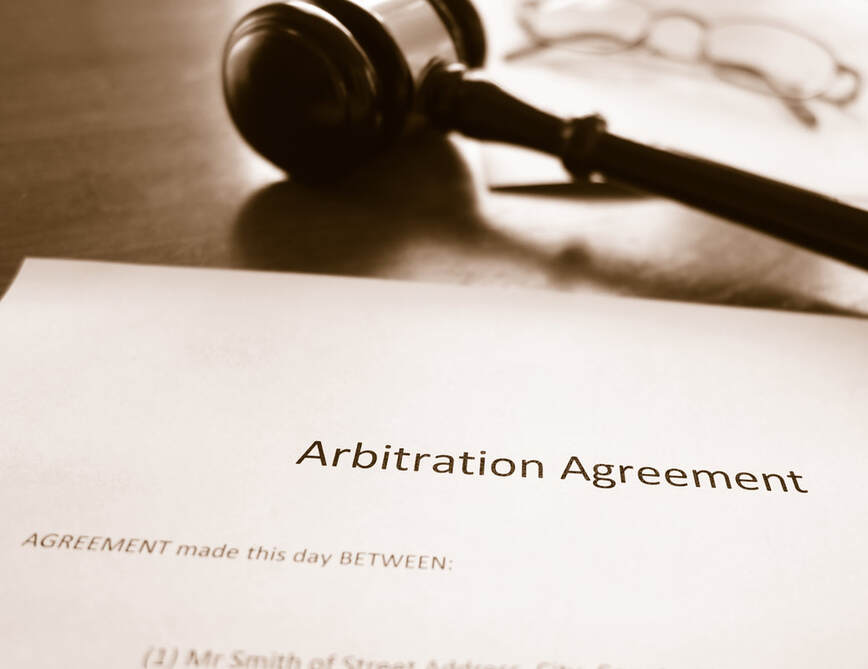 On December 7th, President Biden signed the Speak Out Act into law. The law makes nondisclosure agreements (NDAs) unenforceable if signed before a dispute involving sexual assault or sexual harassment arises. It comes less than a year after the passage of the Ending Forced Arbitration of Sexual Assault and Sexual Harassment Act, a law that also improved workplace protections for victims of sexual harassment and assault. The Speak Out Act represents a big victory for #MeToo movement and workers’ advocates. NDAs are frequently used to silence workers and keep accusations of sexual misconduct out of the public eye. They also prevent many workers from explaining job departures and employment gaps caused by sexual misconduct to prospective employers. According to a paper authored by Professors at Syracuse University and the University of Maryland, approximately 26 % of U.S. employees are covered by NDAs. It is important to remember that the bill does not apply to other kinds of workplace disputes such as age or race discrimination. It also does not apply to NDAs signed after a dispute arises. If you have been the target of sexual misconduct in the workplace, click here to get in touch with Teukolsky Law.
0 Comments
U.S. Senate passes landmark law to protect victims of sexual assault and harassment from arbitration2/17/2022  Last week, the United States Senate passed the Ending Forced Arbitration of Sexual Assault and Sexual Harassment Act, signaling a huge victory for victims of sexual assault and harassment across the country. The law prevents employers from using forced arbitration clauses to protect themselves from lawsuits alleging sexual assault and harassment. The bill invalidates forced arbitration clauses in “any dispute or claim that arises or accrues” after the date it is signed into law. This appears to mean that it applies to existing agreements that an employee has already signed, but does not revive sexual assault or harassment cases that have already been arbitrated. Employers often include forced arbitration clauses in their employees’ employment contracts to ensure that employees’ claims of sexual assault or harassment are resolved through private arbitration, rather than normal court. Many employers do this because the employees tend to fare worse in private arbitration than they do in court. According to a paper published by the Economic Policy Institute, employees in private arbitration win only about a fifth of the time (21.4 percent), whereas employees in federal court win over one-third (36.4 percent) of the time. Employees also tend to be awarded less in damages in mandatory arbitration than in federal courts. The new bill, H.R. 4445, has not been signed into law yet, but has now been passed by both chambers of Congress with strong bipartisan support. President Biden has indicated support for the bill in the past and is expected to sign it into law soon. If you believe you have faced sexual assault or harassment at work, or have questions about arbitration, contact Teukolsky Law today for a free consultation. In recent years, California lawmakers have taken on sexual harassment and assault with a series of changes to state law. In the wake of revelations about how institutions and companies keep sexual misconduct and abuse under wraps—from the Catholic Church sex abuse scandal to Harvey Weinstein—the California legislature has largely taken confidentiality agreements surrounding sexual misconduct off the negotiating table. The legal developments aim to shed light on sexual harassment and violence by preserving the ability of victims to speak about their experiences, despite a settlement. Here is what you need to know:
1) California law prohibits confidentiality in settlement agreements in civil cases where the underlying conduct could be criminally charged as a felony sex offense. The prohibition applies not only to cases related to workplace sexual assault, but to all civil cases. Sexual conduct that could prosecuted as a felony includes (among other acts): rape, and sexual assault where the perpetrator used violence, restrained the victim, or fraudulently deceived the victim into believing the touching was for a professional purpose. Where the conduct you allege rises to the level of felony sexual assault, your attorney could be subject to professional discipline by the California State Bar for demanding confidentiality or advising you to agree to confidentiality in a settlement agreement. 2) California law limits provisions in settlement agreements that prevent disclosure of allegations related to sexual harassment, sexual assault, sex-based discrimination, and retaliation. If you have filed a complaint in court or with an administrative agency (such as California's Department of Fair Employment and Housing), the company cannot require you, as a condition of settling your claims, to stay silent about the facts described in your complaint. An exception may be made where the survivor of sexual harassment wishes to maintain the confidentiality of their identity. At the survivor’s request, the settlement agreement can shield the survivor’s identity and facts that could lead to discovery of her identity. It is also permissible for settlement agreements to require the parties’ confidentiality about the dollar figure of the settlement. If you have experienced sexual assault or sexual harassment or sexual assault in the workplace, contact us today for a free consultation. |
AuthorLauren Teukolsky is the founder and owner of Teukolsky Law, A Professional Corporation. Archives
June 2024
Categories
All
|
Teukolsky Law, A Professional Corporation, represents clients throughout California. Ms. Teukolsky is admitted to practice in the State of California, as well as the United States Supreme Court, Ninth Circuit Court of Appeals, Northern District of California and Central District of California. Disclaimer.
Copyright © 2017
Copyright © 2017

 RSS Feed
RSS Feed